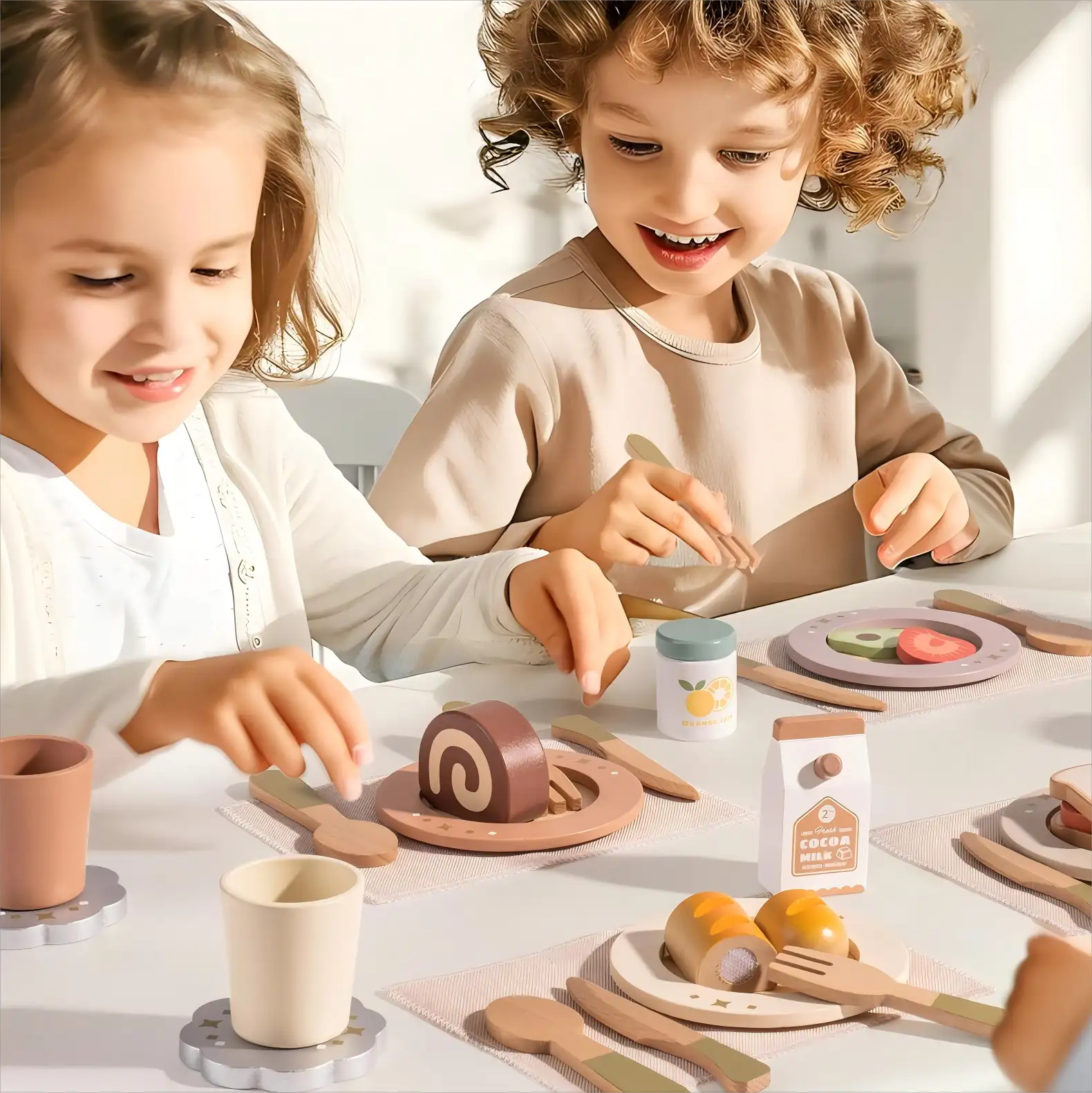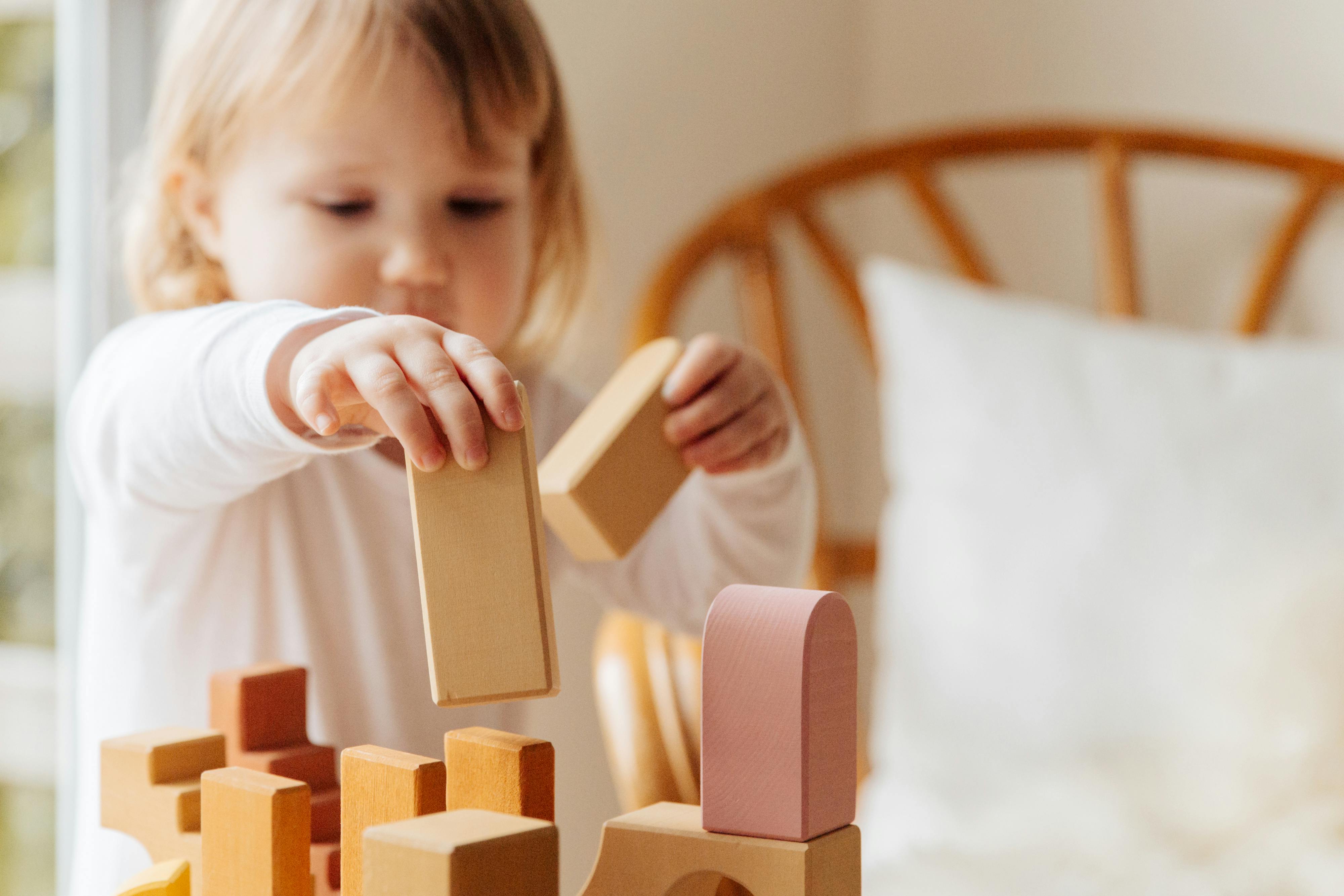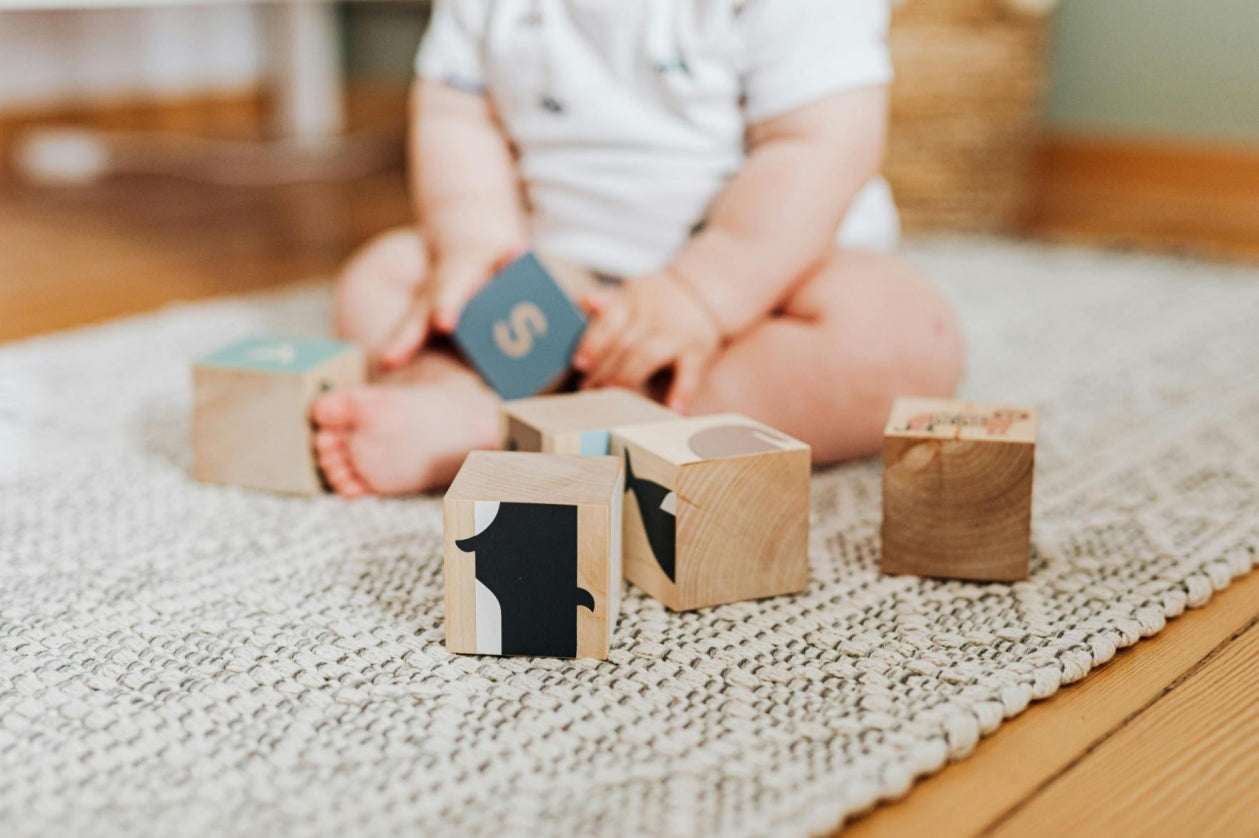
Unlock Your Child’s Imagination with Wooden Kitchen Toys
The Benefits of Montessori Wooden Play Food and Kitchen Toys: Unlocking Imagination and Skills Development
In today's tech-driven world, it's refreshing to see the growing appreciation for simple, hands-on play. One area that has gained traction among conscious parents and educators is Montessori-inspired play, particularly with wooden toys. A standout in this category? Montessori wooden play food and kitchen toys. These beautifully crafted sets aren't just aesthetically pleasing; they offer meaningful developmental benefits for young minds.
Let’s dive into how a wooden play kitchen can do wonders for your child's growth—from motor skills and social development to fostering imagination and even early math skills.

Why Choose Montessori Wooden Kitchen Play Sets?
Montessori principles emphasize independence, hands-on learning, and real-world experiences. When it comes to toys, this means choosing materials that are safe, durable, and allow open-ended play. Wooden play food and kitchen sets are the epitome of this philosophy.
-
Natural Materials: Unlike plastic counterparts, wooden toys are made from eco-friendly and sustainable materials, aligning with Montessori values.
-
Tactile Experience: The weight, texture, and sturdiness of wood offer a richer sensory experience, enhancing tactile learning.
-
Minimalist Design: Simple, realistic designs encourage focus and creativity rather than overstimulation.
At Lunamoa, our Montessori wooden kitchen play sets are thoughtfully crafted to support your child's development in an engaging and meaningful way.
Imagination Comes to Life in a Wooden Play Kitchen
Children are naturally imaginative, and a well-designed wooden play kitchen fuels that creativity. Whether they are "baking" a cake or "cooking" dinner for their teddy bears, pretend kitchen play allows children to invent stories, roles, and scenarios that mirror the real world.
Key Benefits:
-
Role-Playing Builds Empathy: Taking on different roles helps children understand perspectives and emotions.
-
Problem Solving: Figuring out how to "prepare" a meal encourages planning and decision-making.
-
Narrative Thinking: Storytelling during play supports language development and comprehension.
This kind of imaginative play is crucial for cognitive flexibility and emotional growth. With wooden food items shaped like vegetables, fruits, and pastries, kids can even explore cultural and dietary diversity.
Social Skills Blossom Through Pretend Kitchen Play
Montessori wooden kitchen play isn’t a solo activity—it’s a social one. Whether it’s with siblings, parents, or playmates, pretend cooking often involves sharing, negotiation, and collaboration.
How It Helps:
-
Communication: Kids practice asking, answering, and even giving directions.
-
Taking Turns: Whether serving food or setting the table, children learn to wait and share.
-
Conflict Resolution: Minor disagreements during play teach problem-solving in a safe environment.
In fact, research shows that role play is directly tied to increased social competence. Introducing your child to a pretend kitchen encourages them to engage with others meaningfully.
Boosting Motor Skills One Chop at a Time
Montessori play encourages activities that refine both gross and fine motor skills. A wooden play kitchen is the perfect playground for this kind of development.
Fine Motor Skill Examples:
-
Slicing Wooden Vegetables: Many sets come with Velcro or magnetic sections to simulate chopping.
-
Gripping Utensils: Handling small spoons, knives, or cups improves hand-eye coordination.
Gross Motor Skill Examples:
-
Reaching and Moving: Children bend, reach, and walk around their kitchen setup.
-
Arranging and Cleaning Up: Lifting and organizing wooden food or utensils engages larger muscle groups.
Through repeated actions, kids develop precision and control—essential foundations for writing and self-care tasks.

Counting and Categorizing: Math in the Play Kitchen
Who knew that play kitchens could be the first classroom for budding mathematicians? A wooden play kitchen introduces basic math concepts naturally through play.
Math Concepts Learned:
-
Counting Items: “Let’s put three apples on the plate.”
-
Sorting by Category: Fruits vs. vegetables, cooked vs. raw.
-
Measuring and Estimating: “How many scoops to fill the pot?”
These experiences lay the groundwork for numeracy skills, all while having fun.
Choosing the Right Wooden Kitchen Toys
Not all play kitchens are created equal. Look for sets that are:
-
Age-Appropriate: Ensure pieces are safe and suitable for your child’s age.
-
Durable: Hardwood materials stand the test of time.
-
Expandable: Choose a base kitchen and add sets like pastries, vegetables, or cookware later.
We recommend our Wooden Vegetable Play Food Set and Pastry and Dessert Set for the perfect starting points.
Encouraging Independent Play with Montessori Values
One of the core goals of Montessori education is independence. A wooden kitchen playset encourages this by allowing kids to:
-
Set Up Their Own Space: Arrange items how they like.
-
Initiate Their Own Play: No need for constant adult direction.
-
Take Responsibility: Clean up and organize the kitchen after use.
Parents can support by observing quietly, only stepping in when guidance is truly needed.
FAQs: Montessori Wooden Play Food and Kitchen Toys
What age is best for introducing a wooden play kitchen?
Children as young as 2 can benefit, though many sets are ideal for ages 3+. Always follow the manufacturer’s safety guidelines.
Are wooden kitchen toys safe for toddlers?
Yes—if they’re made from non-toxic, child-safe materials like those at Lunamoa.
How can I clean wooden play food?
Wipe with a damp cloth and mild soap. Avoid soaking or putting in the dishwasher.
Can boys play with kitchen toys too?
Absolutely! Play kitchens help all children develop imagination, empathy, and motor skills, regardless of gender.
Final Thoughts: Simple Toys, Powerful Benefits
Montessori wooden kitchen play sets offer more than just fun. They provide an enriching environment for your child to develop creativity, motor skills, social understanding, and early math concepts. Best of all, they create joyful memories of learning through play.
Explore our full range of Montessori wooden kitchen toys and let your child unlock their full potential, one pretend meal at a time.



Leave a comment
This site is protected by hCaptcha and the hCaptcha Privacy Policy and Terms of Service apply.